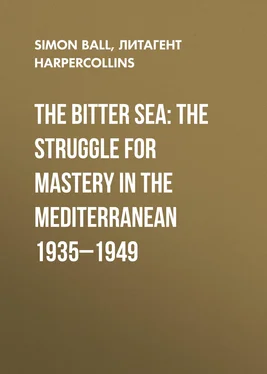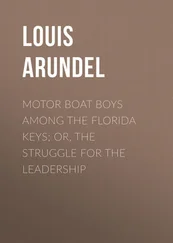1 ...8 9 10 12 13 14 ...30 On 7 April 1939, Italian forces invaded Albania. The self-proclaimed king of the tiny Muslim nation on the Adriatic, Zog, had done his best to accommodate Italian demands down the years, telling his countrymen that we must make speedy and strong paces towards occidental culture and civilisation’. He had even sent his sisters into the mountain strongholds of Islamic fanaticism dressed in tight-fitting skirts to propagate the new Italian way 19 Despite Zog’s willingness to please, Galeazzo Ciano had concluded that it would be much more satisfactory if he, rather than ‘an Oriental’, should receive the homage of Albania’s feudal society Formally, his intention was to annex the ‘made up’ nation to the Italian crown. In reality Albania would become the private playground of the Fascist elite. There they could build their hunting lodges, change the names of whole regions and enrich themselves by the exploitation of Albania’s presumed oil reserves. 20 Albania, Ciano said, was a ‘beautiful spectacle’, the Mediterranean ‘like a mirror’ giving way to green countryside and then the snow-crowned mountains. 21
Ciano’s original plan was to have Zog assassinated, his only qualm a lingering fondness for Zog’s wife, Queen Geraldine. 22 The assassination plot was discovered. In its place Ciano convinced Mussolini that a full-scale invasion could win the prize with minimum effort. Even the cautious Badoglio agreed that a war limited to Albania could be carried through without too much trouble. He merely insisted that an even larger body of troops should be used to be on the safe side. 23 The Albanian ‘incident’ itself was over within forty-eight hours. Zog fled to Greece without putting up any resistance. Observers described a triumph: the British military attaché in Rome reported that ‘the invasion of Albania was an example of the great progress made by the Italian army in military organisation on a large scale’. 24
Those closer to the action were less sure. One of Ciano’s aides commented that ‘if the Albanians had possessed a corps of well-trained firemen they would have thrown us into the Adriatic’. 25 Ciano himself, who made the short flight to Albania’s Italian-built Mediterranean port Durazzo on the day of the invasion, was delighted. The situation in the country was ‘excellent’. As Britain’s senior diplomat in Tirana noted, ‘whatever the deeper feeling of various sections of the Albanian people as a whole, the broad fact remains that on the political side the Italians carried through with much greater ease than might have been expected’. 26 What was even better, Ciano remarked, was that the ‘international reaction was almost non-existent’. 27 But despite the cordiality of the Britons on the spot, he was wrong. 28 The invasion marked the start of feverish attempts by Britain to redefine the Mediterranean. 29 Before the spring of 1939 there was talk; between the summer of 1939 and the summer of 1940 there was, if not action, at least organization.

The very terminology used for Britain’s new Mediterranean paid testimony to the now overriding concept of a ‘closed sea–impassable to merchantmen and difficult even for warships unless in great strength. If the Mediterranean was severed at the Sicilian Narrows, then British forces could still reach it from the east, albeit with difficulty. Thus, the argument went, the Mediterranean and the Middle East was clearly one strategic problem’. In the 1930s the RAF had started using the generic term ‘Middle East’ to refer to Egypt as well as Iraq, leading in turn to the application of the phrase to all British forces deployed around the eastern shores of the Mediterranean. Sadly no one could quite agree on the nature or geographical extent of that problem. 30 The Army’s concept was to create a General Officer Commanding-in-Chief, Middle East. But until the crisis of the summer of 1939, the generals were unwilling to act on their own concept. The army commanders in Egypt and Palestine objected to having a commander imposed on them when their main challenge was internal revolt. They saw themselves as vice-regents of the eastern Mediterranean, in uneasy partnership with their diplomatic and gubernatorial opposite numbers. So the Army parked its commander-in-chief-elect at the other end of the Mediterranean in Gibraltar, ready to be rushed to Cairo in an emergency. 31 It was only in June 1939 that the GOC-in-C was activated. General Archie Wavell was finally dispatched to Egypt in August 1939. At that time he controlled two pieces of the Mediterranean littoral–Egypt and Palestine–and a major island, Cyprus. He was instructed to make arrangements to fight alongside three Mediterranean powers, France, Turkey and Greece; ‘a bit hectic if we have a war’, he commented with some understatement. 32
The RAF already had a Mediterranean Command of sorts, since the Air Officer Commanding Malta also controlled air forces on Gibraltar. Some flyers wanted to move the Mediterranean west rather than east, arguing that Malta was indefensible and that Cairo was too far away from the real action. They were overruled, not least because the Army was moving east. The RAF, too, created an Air Officer Commanding-in-Chief, Middle East to sit alongside his Army counterpart. 33
It was the Royal Navy who stood out for a true Mediterranean command. They had a Mediterranean Fleet and a Commander-in-Chief, Mediterranean. The sailors were purists. Their Mediterranean stretched from Gibraltar to Suez, with Malta as the half-way point. They would have no truck with ideas of a unified Middle East and Mediterranean. Anything south of the Suez Canal was in the Indian Ocean as far as they were concerned. 34 The navy also disliked the AOC-in-C Middle East. They wanted the AOC Mediterranean to be part of their organization; the RAF wanted him firmly under the command of their man in Cairo. The final compromise reached through the ‘alembic’ of the Chiefs of Staff placed the AOC Mediterranean under the ‘command and general direction’ of the AOC-in-C Middle East but with the authority to deal directly with the C-in-C Mediterranean. 35
When the three commanders-in-chief met for the first time on 18 August 1939 on board the battleship HMS Warspite in Alexandria harbour they still couldn’t agree exactly where the Mediterranean was, or where they were going to control it from. The Army and the RAF were busy setting up their headquarters in Cairo. The Royal Navy was still equivocating between Malta and Alexandria. The C-in-C Mediterranean, Andrew Cunningham, himself admitted that he was ‘rather remote’. 36 Even when the time came to move ‘lock, stock and barrel to Alexandria in a hurry’, there would be real difficulties for the Mediterranean commanders in talking to each other. 37 Following naval tradition, Cunningham insisted on sleeping on his flagship. He was often at sea. Quite often when a Commanders-in-Chief meeting was called he would be unreachable, leaving behind a harassed and unauthoritative staff officer.
In the wake of the commanders-in-chief came a plethora of subsidiary organizations all seeking their place in the sun. For some years it had been acknowledged that commanders might need to know what was happening in the vast area they were supposed to control; equally they would probably need to know what the enemy intended to do to them. No one was collating such information, however. At the time of the Munich crisis in the autumn of 1938, naval intelligence detected troop ships sailing from Italy to Libya, but no one told the GOC Egypt who was supposed to defend Egypt against a surprise attack from Libya. Agents in Libya observed the troop ships arriving, but they communicated the information to the Foreign Office in London, who failed to decipher the telegram. When the telegram was finally read it was passed along Whitehall from the Foreign Office to the War Office. The War Office then telegraphed Cairo. All the communications went via London, and no one in the Mediterranean seemed to talk to one another. 38
Читать дальше













